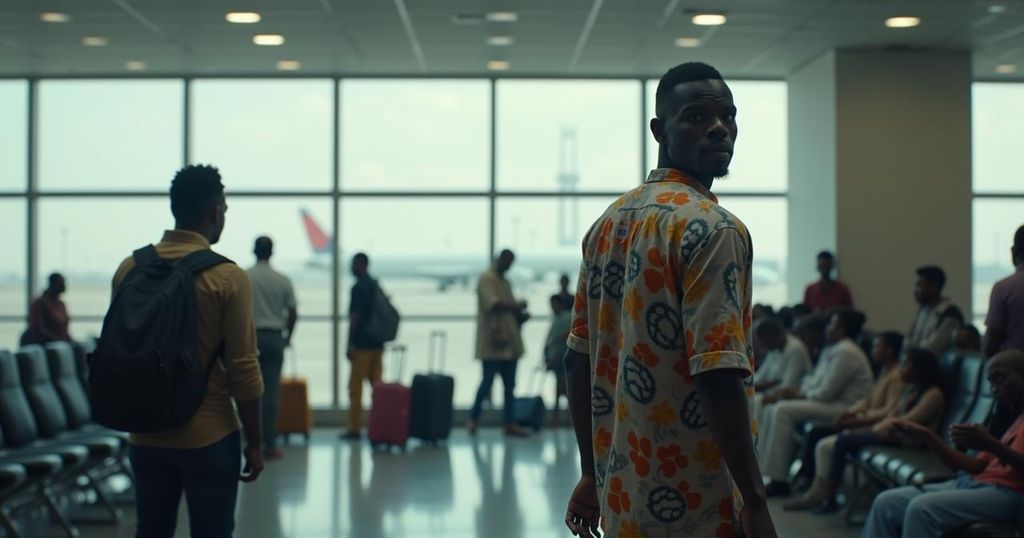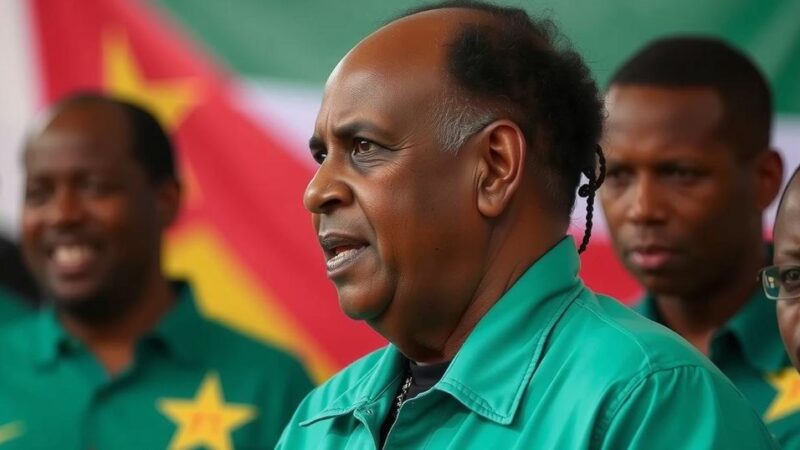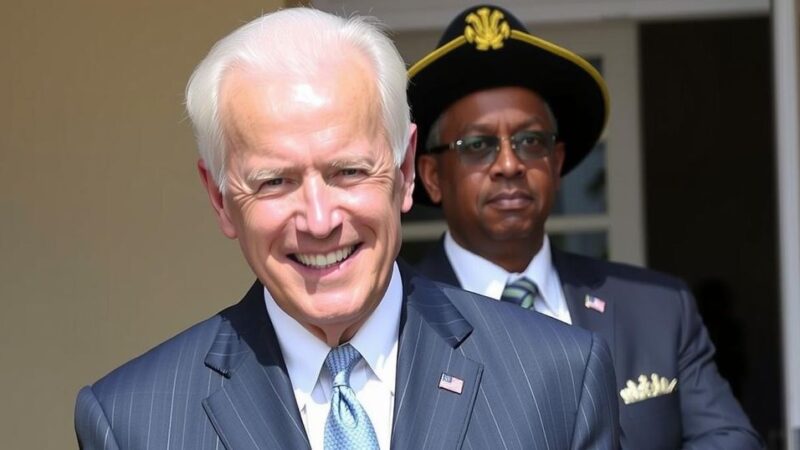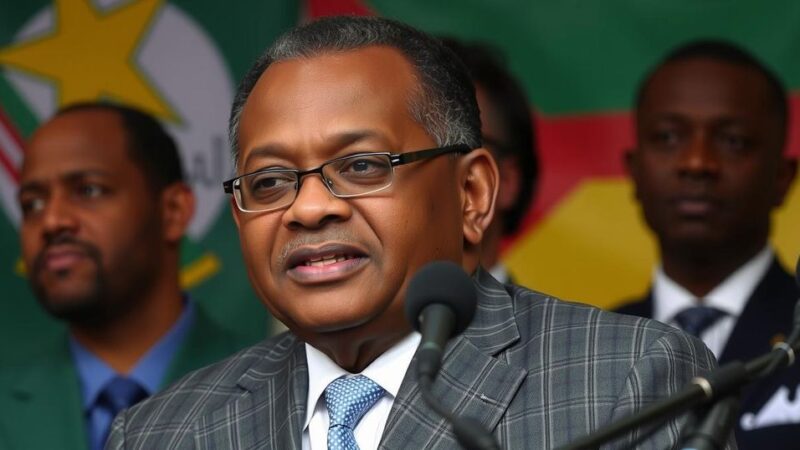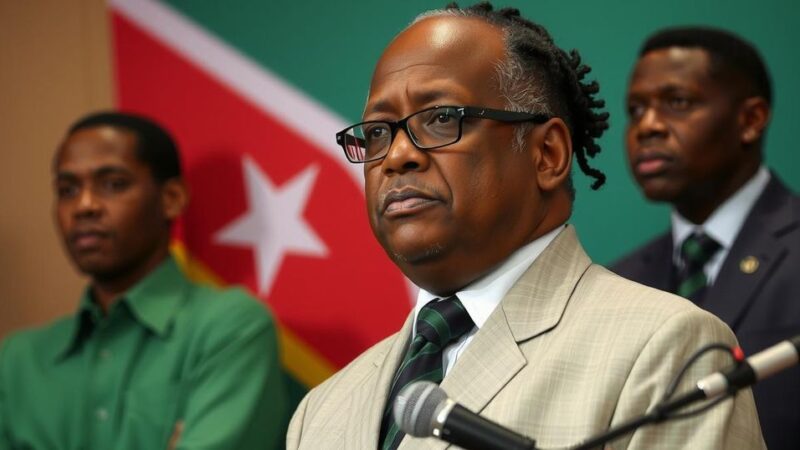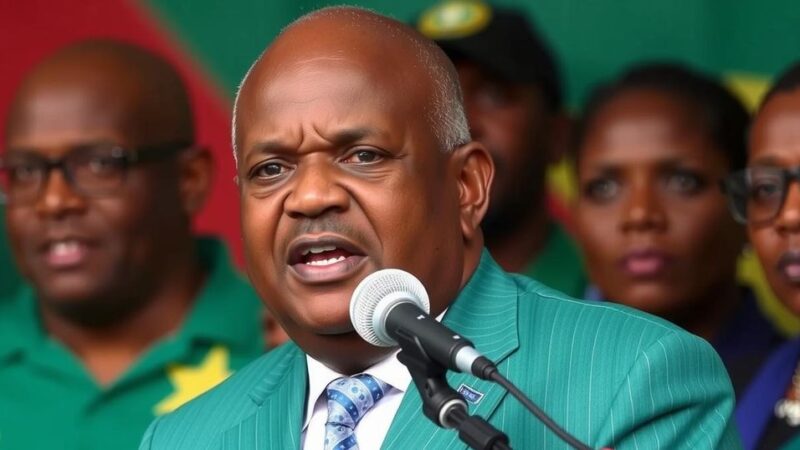Leicester City’s Wilfred Ndidi reported that he and his Nigerian teammates are stranded at a closed airport in Libya, facing conditions of deprivation for over 12 hours after their flight was diverted. Allegations indicate that the Libyan government may be intentionally disrupting their participation in the Africa Cup of Nations qualifying match, leading the team to announce a boycott of the match, demanding intervention from their national government.
Leicester City’s Wilfred Ndidi has raised alarm over the situation involving himself and fellow members of the Nigerian national football team, who are reportedly stranded at Al-Abraq airport in Libya after their flight was diverted from Benghazi. The team was scheduled to participate in an Africa Cup of Nations qualifier against Libya but was forced to land at an airport that they later discovered was closed. Notably, the players have expressed dire conditions, remaining without food or water for over 12 hours, leading to allegations of the Libyan government deliberately attempting to sabotage their participation in the match, particularly following previous complaints of ‘hostile treatment’ encountered during a recent fixture. As a result of their troubling circumstances, Nigeria’s national team has declared a boycott of the match, citing their confinement at the airport and the inability to coordinate alternative travel plans. In an Instagram post, Ndidi expressed deep dissatisfaction with the current situation, stating: “This is not football. Very embarrassing. Hostage to a national team. Disgrace.” Victor Boniface, a forward with Bayer Leverkusen, took to Twitter to elaborate on their predicament, noting, “Been at the airport for almost 13 hours no food no wifi nowhere to sleep African we can do better.” William Troost-Ekong, a former Watford player now engaged in Saudi Arabian football, provided a lengthy account of their ordeal on the social media platform X, revealing, “12+ hours in an abandoned airport in Libya after our plane was diverted whilst descending. The Libyan government rescinded our approved landing in Benghazi with no reason. They’ve locked the airport gates and left us without phone connection, food or drink. All to play mind games.” Troost-Ekong emphasized the unprofessionalism of the situation, sharing insights into the reactions of their team and even the Tunisian pilot who flew them, who expressed disbelief at the events observed during this trip. Furthermore, he urged the Nigerian government to step in and assist them, stating, “As the captain together with the team we have decided that we will NOT play this game. CAF should look at the report and what is happening here.” Beyond merely declining to participate due to these circumstances, he asserted their intention to not accept any poorly arranged transportation or accommodations in light of safety concerns. Troost-Ekong concluded his remarks by arguing for mutual respect in football, particularly regarding the treatment of visiting teams in Nigeria, acknowledging that while errors may occur, deliberate malice should be condemned.
The situation surrounding the Nigerian national football team illustrates the broader challenges faced by teams traveling for international matches, particularly in politically unstable regions. In this instance, the diversion of their flight resulted in unexpected hardship and questions regarding the intent behind the Libyan authorities’ actions. The allegations imply a pattern of conduct that could disrupt the integrity of international sporting events. The statements from various players highlight not only their immediate distress but also raise concerns about adequate support for teams traveling to compete in such environments. Furthermore, the national team’s decision to boycott the match underlines the seriousness of their plight and their commitment to standing in solidarity against what they perceive as unfair treatment.
In summary, the predicament of the Nigerian national football team in Libya has uncovered significant challenges related to safety and fair treatment of competing teams in international matches. Players such as Wilfred Ndidi, Victor Boniface, and William Troost-Ekong have voiced their grievances regarding the ostensibly hostile conditions imposed upon them. Their collective decision to boycott the scheduled match serves as a powerful statement regarding their unwillingness to compromise their dignity and welfare. As this situation evolves, it will be essential for governing bodies like the Confederation of African Football to address such incidents to safeguard the integrity of the sport.
Original Source: www.mirror.co.uk

